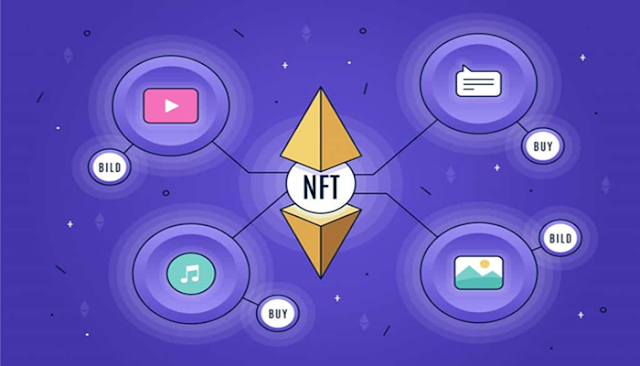Do you remember collecting cards, stickers or figurines back in the days? It was a way to show off your unique and rare items among friends. But what if I told you that now it's possible to do this virtually with NFTs? NFT games are revolutionizing not only the gaming industry but also reshaping our financial system as we know it. In recent months, these tokens have been taking over headlines and causing quite a stir between gamers and investors alike.
In this article, let’s dive deeper into how such small digital items can impact so significantly on traditional finance systems like banks or even influence global cryptocurrency markets.
The Dawn of the NFT Game Phenomenon
The emergence of NFT has spurred an unexpected revolution in the gaming sector and crypto gambling. But what exactly are these games? Non-fungible tokens, or NFTs for short, represent one-of-a-kind digital assets like music and virtual real estate that can be sold on blockchain platforms. With this as a foundation for innovation within gaming experiences – came the creation of NFT games.
This development allows players to possess and exchange exclusive virtual items such as skins, weapons or even characters across different game formats – collections just like those found in real life! Gods Unchained, Axie Infinity and Sorare are only some examples among many other popular types available Game enthusiasts aren’t alone in their admiration; investors have also been drawn by its advancements creating significant hype around it.
NFT Games: A New Playground for the Financial Sector
The emergence of NFT games has created a new playground for the financial sector to explore. Trading in-game assets, typically valued based on rarity and personal preference, creates dynamic markets that were once not possible without blockchain technology.
This creation has allowed investors to dabble with buying or selling these virtual items which may also drive up cryptocurrency usage. Because cryptocurrencies are usually required as modes of payment for NFT game assets, their demand has ballooned. This increase in usage could potentially influence cryptocurrency prices.
In response to this development, traditional financial institutions are also starting to show interest by investing in NFT gaming companies and creating new financial products revolving around these unique digital items.
One example of this is the tokenization of real-world assets, where experts predict that NFT technology could be applied to represent physical items like artwork or collectibles. This expansion of investment opportunities could be a potential game-changer for the industry.
But it's not just about investments and financial products - NFT games are creating significant economic effects as well. It has generated job creation, especially among developers who create these innovative games or artists that design unique items to sell within the game environment.
But issues such as taxation and regulatory challenges must also be taken into consideration, with NFTs’ tax implications still murky at best; experts continue to study how they can potentially affect government revenue. Regulatory challenges also arise as authorities attempt to regulate these unique digital items.
Financial Innovations with NFT Games
Cutting-edge DeFi integration features like peer-to-peer transactions and decentralized exchanges for NFT trading are taking traditional banking models out for a spin. As this technology evolves we are anticipating even more advanced financial applications using NFTs. Here is a list of the latest innovations:
● DeFi. The borrowing and lending feature has the potential to reshape banking as we know it. Who needs a bank when you can conduct all your transactions using blockchain?
● Decentralized exchanges. These exchanges allow gamers to trade their digital assets without fear of audits or interference from central authorities. It's as if you're in a virtual market selling and exchanging goods with other players.
● Tokenization of real-world assets. NFTs are not limited to just in-game assets. They can also represent physical goods digitally, like collectables or art pieces; this could lead to investment opportunities across various industries beyond gaming!
NFT games' impact on the financial sector is nothing short of remarkable. From creating new markets and driving demand for cryptocurrencies to generating economic effects and inspiring innovation with DeFi - this realm has disrupted traditional finance systems in ways nobody could have imagined.
The Future of NFT Games and the Financial Landscape
The sky's the limit for NFT games in reshaping our financial landscape. As this market continues to innovate and expand it's important to look ahead at its potential long-term effects.
Experts predict that NFT technology is poised to broaden investment opportunities beyond gaming into areas such as virtual real estate or sports collections. Financial institutions are also likely to explore partnerships with NFT game companies by offering new products catering to gamers and investors alike.
NFTs can have a significant impact on financial inclusion. In areas where traditional banking systems are inadequate these digital assets may provide individuals with an alternative way to hold and invest their wealth independently without the need for intermediaries. Thus, possibilities abound in using this technology to address complex financial challenges that previously limited access for many people.



No comments:
Post a Comment